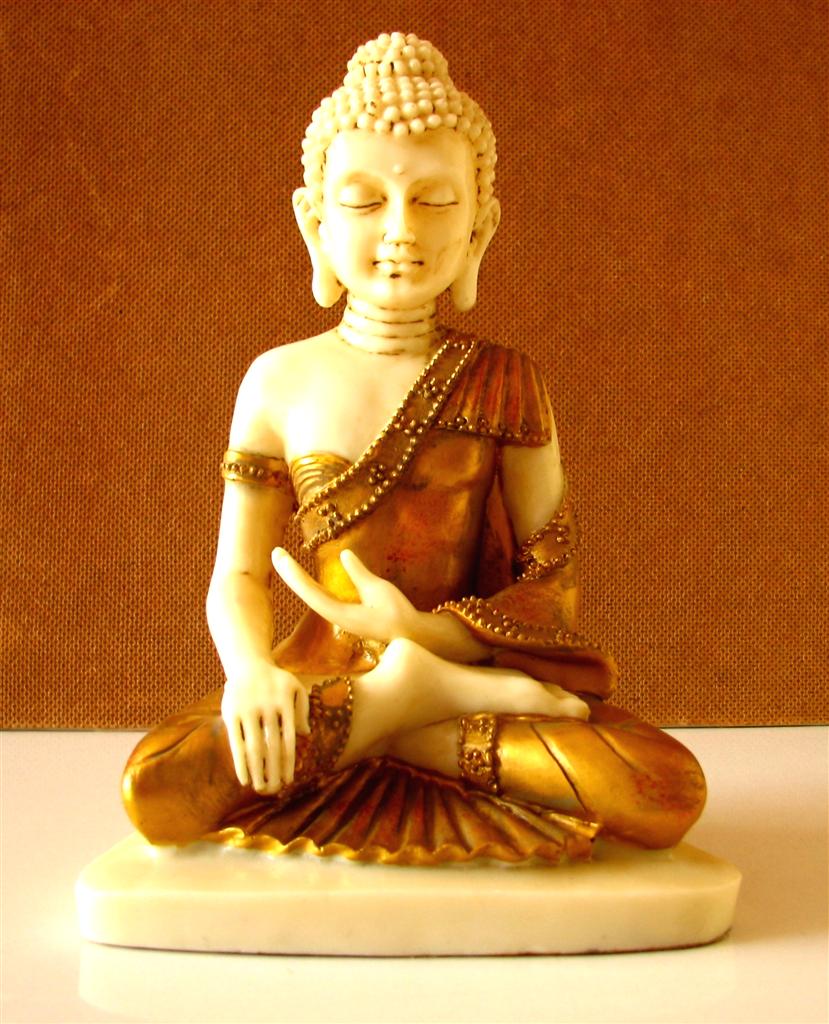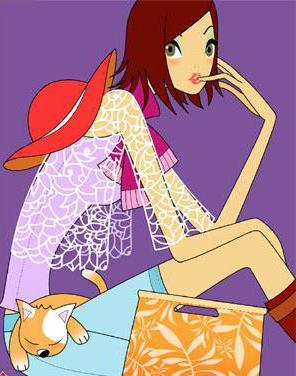| Zhou Libo's edgy humor a hit in Shanghai- | |
|---|---|
| Nov 24, 2010 22:34 | |
 | Zhou Libo, a typical Shanghainese and shanghainese comedian, is the window unfolding for u Shanghainese way of thinking, living and working. Hope more Englsih bloggers can translate his critial thoughts that directly points to what is happening in the Changing China in a sense of humor. July 07, 2010|By Andrew Higgins, Washington Post Shanghai — Amid throbbing music and wild applause, Zhou Libo waddled onto the stage mimicking the gait and gestures of Mao Zedong, Communist China's founding father. Spotlights played across big, gold Chinese characters trumpeting the theme of the night's performance: "I'm Crazy for Money." Zhou is an unusual phenomenon: a stand-up comic who ribs officials, celebrates wealth and extols what he and many others in this most cosmopolitan of Chinese cities view as the superiority of their metropolis. Beneath the gags, delivered in a mix of Mandarin and Shanghai dialect, lurk some of China's most sensitive issues. "I want to make my audience think," Zhou said in a backstage interview shortly before showtime at the Shanghai International Gymnastic Center. He makes cracks about "garlic munchers" in the capital and outsiders who don't share Shanghai's sophisticated ways. Other favorite topics include sky-high real estate prices and the gyrations of the city's stock exchange - also touchy subjects with China's dour leaders. The comedian's Shanghai shtick has won him a huge following among the city's prosperous bourgeoisie, a class that Mao and a handful of fellow revolutionaries vowed to eliminate when they gathered here in June 1921 to establish the Chinese Communist Party. After starting out in a 700-seat Shanghai theater, Zhou moved his show this year to the Gymnastic Center, which has 3,700 seats. His performances all sold out despite an average ticket price of more than $50, roughly two months' wages for the average Chinese. |
| Nov 24, 2010 22:35 | |
 | He has also produced a series of best-selling DVDs and a "dictionary of humor" to help decipher his Shanghainese punch lines, nearly all of which get lost in translation. "My audience is mostly white collar. I talk about fairly complicated things for fairly complicated people," Zhou said. "I let simple people talk for the simple people." This year, he caused a stir by declining an invitation to go to Beijing and take part in a lowbrow TV variety show over Chinese New Year. The show, an annual event on China's main state-run television channel, is pitched mainly at peasants and migrant workers who return to their villages for the holiday. Zhou said he turned down the offer because he knows "nothing about peasants. My culture is urban culture." Shanghai, though itself primarily a city of immigrants, has a long history of looking down its nose at outsiders. But, as in other big cities, the tension has increased sharply in recent years as migrant workers from the countryside have flooded in looking for work. |
| Nov 24, 2010 22:37 | |
 | Other English Post about Zhou, Libo The Chinese comedian’s use of ‘Shanghainese’ gives him flexibility that most Mandarin-speaking performers don’t have — the government in Beijing can’t understand him. And his fan base is growing. Shanghai – Zhou Libo is an impeccably dressed comedian. His typical uniform, a black sport coat accented with a red handkerchief tucked into the breast pocket, looks just right as the 42-year-old comedian bursts onstage to the “James Bond” theme song, laser lights flashing and smoke machine on full blast. “Everyone needs a theme song,” he explained onstage this year, clutching a fake gun, staring through sunglasses at an adoring audience packed into Shanghai’s Majestic Theater. Zhou is Shanghai’s homegrown rock star. Born and raised here, he began his career with a local comedy troupe before taking the stage on his own. His routines are filled with local humor and performed mainly in “Shanghainese” — a local dialect with only a passing resemblance to Mandarin. Zhou’s choice of language has given him flexibility that most Mandarin-speaking comedians don’t have because authorities in Beijing don’t speak the dialect, and until now his limited audience has meant limited official interest. Despite his Shanghainese, Zhou is gaining national fame. Fans scoop up his DVDs and buy tickets to his shows months in advance, responding to Zhou’s dedication to the city of his birth and his willingness to speak frankly on topics as varied as Shanghai’s storied past and the antics of China’s top leaders. |
| Nov 24, 2010 22:37 | |
 | “From the small, like the common people, to the big, like Obama, I’ll talk about it all,” said Zhou, facing reporters at a Shanghai hotel last month. That Shanghainese is understood by only a fraction of China’s 1.3 billion people probably helps keep him out of trouble, because Zhou is practiced at making fun of leaders who, generally, don’t take ridicule well. “He has an uncanny ability to poke fun at all the present-day problems in China and the world,” said Adam Schokora, founder of NeochaEdge, a Chinese culture and trend-spotting consultancy. “This is not easy to do well in China.” In one of his most famous skits, the comedian does an impersonation of China’s premier, Wen Jiabao, with arched eyebrows and slow, high-pitched speech. “Wen Jiabao is my favorite government leader,” Zhou declares, just before launching into his routine — an impression of Wen at the scene of a natural disaster. “Premier Wen finds the dirtiest person available to shake hands with,” Zhou says, and then turns to his audience, eyebrows high, face serene. He slowly mimes a handshake. “My friend,” he says in his slow, reedy Wen Jiabao voice, “we have come too late.” Though Zhou says no one is safe from parody, he does tread carefully. “I respect the leaders,” he said at last month’s news conference. “I’m not making fun of them; I’m making fun of the whole world.” Zhou has coined the term “Haipai Qingkou,” or “Shanghai-style clean talk,” to describe what he does. His style strays from traditional Chinese comedy, or “cross-talk,” which features two performers playing off each other. Haipai Qingkou is performed solo, and the jokes, delivered deadpan, emphasize Shanghai-specific stories. |
| Nov 24, 2010 22:38 | |
 | In particular, Zhou loves to talk about how things have changed since the 1970s, touching on the poverty in Shanghai’s past and covering topics that, until now, have been discussed mainly with embarrassment. “He’s talking about my generation and the generation before me,” said Fish Zhou, a Shanghainese graphic designer who was born in the 1980s. “Some of his jokes are about things I can remember, and others are about the history of Shanghai, things I would like to learn.” Zhou’s love of his hometown is emblematic of a city embracing its own personality, unique in China. As cities such as Shanghai become more affluent, they are becoming more confident in their identities. Many are revisiting local culture, and dialects are gaining a sheen of hipness. There also is more money to help support grass-roots performers. Zhou is not the only one to have benefited. Other popular comedians, such as Guo Degang and Xiao Shenyang in northern China, have also relied on local audiences to build their national reputations. Zhou’s success in Shanghai is so great that he has turned down offers to perform at the annual Spring Festival Gala in Beijing, a television event famous for launching performers to national stardom. “Zhou Libo will rarely leave Shanghai,” he said, slipping into the third person. “If I leave Shanghai, it’s basically the same as leaving the country.” This regionalism has not escaped criticism. Zhou has been accused in the Chinese press of driving a wedge between Shanghai and the rest of China. With the use of dialects on the rise, the central government has taken steps to limit their spread. China’s broadcasting watchdog released a statement this summer demanding that dramas and children’s shows be in Mandarin. News and TV presenters are required to pass tests on Mandarin pronunciation. |
| Nov 24, 2010 22:38 | |
 | Zhou isn’t deterred, however. “A language’s development and extinction can’t be controlled by the government.” The comedian also has other media to rely on; his popularity has been aided by the Internet and, as more people purchase cars, radio. With his DVD sales, a new live show and a new dictionary of funny Shanghainese words, Zhou is doing fine. “Shanghai culture and language will change,” he said. “But there will always be something to talk about.” Hilgers is a special correspondent. |
| Dec 1, 2010 02:56 | |
 | He is very humorous. He had a "fight" on the internet with many netizens. Finally, he called off. But his image has been destroyed. |
| Dec 1, 2010 21:34 | |
 | BBQQ, who cares about today's internet media that is losing trust coz of fraudulant and degraded trashy info especially in entertaining, and chatting sectors. Chow, Libo's fame earned from his direct communication on the live stage with his audience. His clean talk is witty,sharp and visionary in reflecting the real life. |
| Dec 27, 2010 03:35 | |
 | However i like his performance and sharp comment on current affairs. |
| Dec 27, 2010 16:19 | |
 | I absolutely agree with Libo on today's unqulified internet media is public toilet! from other internet source Zhou Libo's toilet comments draw public anger November 28, 2010, Shanghai - "The Internet is a place for netizens to throw their private shit, and when all private ones get together, it becomes public shit and the Internet is actually a public toilet," Zhou Libo(周立波) wrote in response to the people who criticized his comments on the Shanghai high rise apartment fire that killed 58 people in the city's Jing'an District. While most online comments showed sympathy for the victims and some displayed anger toward the fire authorities, Zhou had expressed his appreciation of the high efficiency of the government and firefighters. Zhou won citywide fame in late 2008 with his "Shanghai-Style Clean Talk," a form distinct from the usual comedy shows in which off-color jokes or heavy-handed clownish humor were not uncommon. At the same time, Zhou has become one of the hottest topics on all kinds of media, just like Xiaoshenyang three months ago and Guo Degang two years ago. |
| Dec 27, 2010 16:19 | |
 | Talking about urban lives, economic and political issues in a mixture of Shanghai dialect, Putonghua and some English words, Zhou's performances have been acclaimed by Shanghai citizens, who long for a local star to speak to their culture. Fans also liked him for his sarcastic imitation of and jokes about world leaders, and many considered him a worthy representative of Shanghai culture. They were disappointed at his comments about the disaster, calling it flattering to authorities, and a strange thing for Zhou to have done. They got even more upset seeing Zhou's response to their criticism, the entry about a "public toilet." One blogger reported that Zhou lost 200,000 fans on weibo within one day after the "toilet" entry. Zhou kept arguing with his critics on his weibo page for nearly 14 hours, using phrases such as "those of you *** who scream on the Internet are poor losers in real life" or "I have used and donated much more money than you can ever imagine, so you have no right to talk about money with me." |
Page 1 of 2 < Previous Next > Page:
Post a Reply to: Zhou Libo's edgy humor a hit in Shanghai-








 Copyright © 1998-2026 All rights reserved.
Copyright © 1998-2026 All rights reserved.